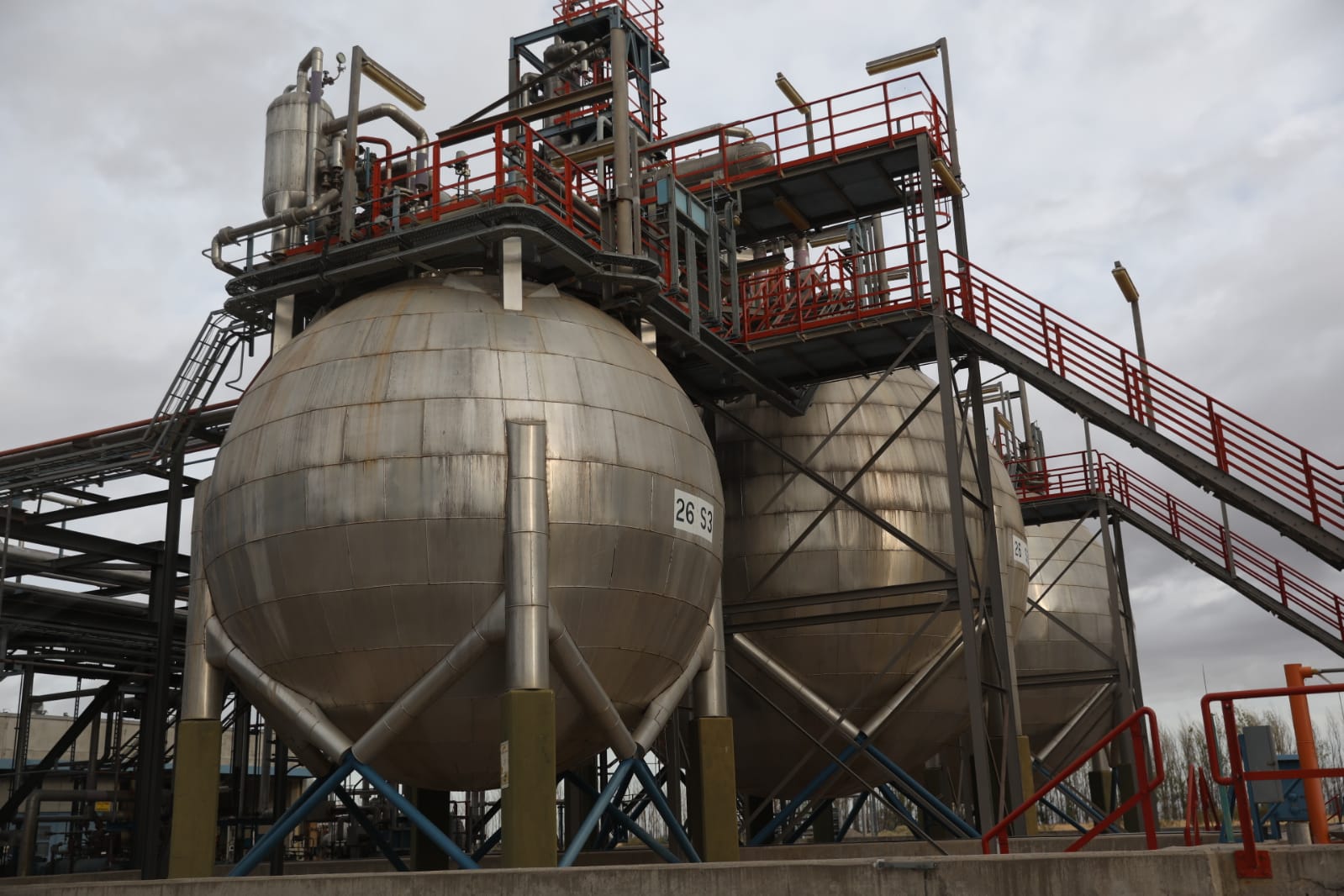 The restart of Argentina’s Heavy Water Industrial Plant (PIAP – Planta Industrial de Agua Pesada) at Arroyito in Neuquén, planned for 2025, is seen as opening possibilities for clean energy generation and for export. Following a recent visit to the plant, Adriana Serquis, President of the National Atomic Energy Commission (CNEA – Comisión Nacional de Energía Atómica), said PIAP was a “strategic asset” for Argentina.
The restart of Argentina’s Heavy Water Industrial Plant (PIAP – Planta Industrial de Agua Pesada) at Arroyito in Neuquén, planned for 2025, is seen as opening possibilities for clean energy generation and for export. Following a recent visit to the plant, Adriana Serquis, President of the National Atomic Energy Commission (CNEA – Comisión Nacional de Energía Atómica), said PIAP was a “strategic asset” for Argentina.
Heavy water is used as both a coolant and moderator in pressurised heavy water reactors (PHWRs) such as Candus. PIAP is owned by CNEA and is operated by Empresa Neuquén de Servicios de Ingeniería (ENSI), a partnership between CNEA and the Province of Neuquén, which has the majority shareholding.
Its construction began in 1984 on the banks of the Limay River, which has a high deuterium content, one of the components of heavy water. The Arroyito plant was designed as part of the Argentine Nuclear Plan (PNA) which aimed to achieve energy sovereignty based on the development of nuclear energy. PIAP was inaugurated in 1993 and in 1994 began operating with a capacity of 200 tonnes of heavy water a year. It was used to supply the needs of Argentina’s three PHWR reactors – Atucha I and II in Zárate and Embalse in Córdoba. The PNA envisaged the construction two further nuclear power units.
Serquis was accompanied on her visit to PIAP by Secretary for Strategic Affairs (Secretaria de Asuntos Estratégicos) Mercedes Marcó del Pont and Neuquén Energy Minister and Director of ENSI Alejandro Monteiro. The delegation also included the General Manager of YPF Tecnología (Ytec) Eduardo Dvorkin. Ytec is one of most important R&D companies for the energy industry in Argentina with strong links to the National Scientific & Technical Research Council (Conicet – Consejo Nacional de Investigaciones Científicas y Técnicas).
The delegation toured the facilities and held a working meeting to advance the possibilities of producing energy based on hydrogen and other business lines detailed in a memorandum of understanding agreement signed in 2022 by CNEA, Neuquén Province, Ytec and ENSI. They agreed to develop the production of hydrogen, ammonia and urea in a second production line at PIAP.
Mercedes Marcó del Pont commented: "Argentina has a wealth of scientific and technological capabilities in the nuclear sector that expand the spaces available to insert itself into the energy transition and transform it into a development vector." He stressed the importance of "the agreement between the CNEA and the Government of Neuquén that allows the plant to start up again”. He added: "It is a strategic measure to guarantee energy sovereignty. The active work of the Ministry of Energy is essential for strengthening the nuclear sector."
Serquis indicated that for CNEA it was key to support the restart of PIAP. "In the first stage, we focused on one of the lines being able to continue producing heavy water, not only for the continuation of the operation of our three nuclear plants, but also to because it is a high-value exportable good." She also recognised the value of having a second line, “which will be used for projects that the Secretariat for Strategic Affairs values and encourages". She noted that, together with a leading company like Ytec, a fertilizer or ammonia production plant could be considered, including “the possibility of producing these inputs in a green way, that is, with some type of renewable energy".
Argentina's three nuclear power units will require some 485 tonnes of heavy water during their operating lifetimes. The rest could be exported to other countries with PHWRs such as Canada, China, India, Romania and South Korea. Heavy water is also used in a range of scientific and technical applications in medical investigations and various types of spectroscopy.
Image: The Neuquén heavy water plant (courtesy of Government of Argentina)






